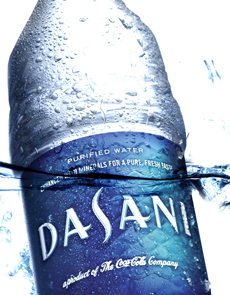TIP OF THE DAY: Check Your Bottled Water Quality
|
|
If you’re going to buy bottled water, shouldn’t it meet the same purity standards as tap water? Here’s a surprise:
While tap water must meet municipal standards for purity, bottled waters don’t have to disclose anything about water quality. We simply don’t know what’s in bottled water. Even if it tastes good, it could harbor major pollutants. An analysis of 10 major brands of bottled water conducted by the University of Iowa Hygienic Laboratory showed that they variously contained the following: |
|
|
The study reports: “In conjunction with this testing program, EWG* conducted a survey of 228 brands of bottled water, compiling information from websites, labels and other marketing materials. We found that fewer than half describe the water source (i.e., municipal or natural) or provide any information on whether or how the water is treated. In the absence of complete disclosure on the label, consumers are left in the dark, making it difficult for shoppers to know if they are getting what they expect….” *The Environmental Working Group, a not-for-profit group dedicated to protecting public health and the environment. Of the ten top-selling U.S. brands of bottled water, Pure Life Purified Water (Nestle) earned a grade of B from the EWG for information disclosure. Arrowhead Mountain Spring Water (Nestle) earned a grade of C. The others—including big brands from Coca-Cola, Nestle and Pepsico—earned D grades, and one received an F. Here are the results for all 173 brands reviewed. Filtered tap water received the best grade (an A) from EWG. If you change your filter regularly, EWG says, your tap water is purer than bottled water. What You Can Do About It †CHECK OUT YOUR MUNICIPAL WATER: Cities with the best and worst tap water. Let your elected representatives know that bottled water should conform to the same right-to-know standards as tap water. Here’s the contact information for U.S. Senators and Congressmen/Congresswomen. Tell them you want easy consumer access to: When you do need to choose bottled water, look for brands that tell you what’s in the water (how pure it is), where it comes from and which advanced treatment technologies are used (such as reverse osmosis and micro-filtration).
|
||


